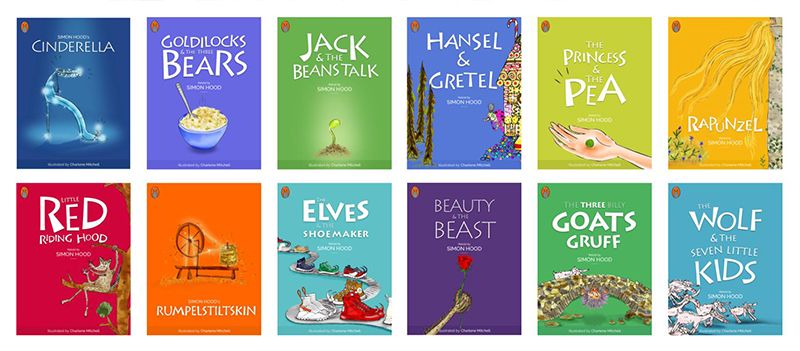
Do you read your children bedtime stories?
Intuitively, reading a bedtime story feels like a great thing to do as a parent. It’s fun. Calming. And gives us a chance to connect with our little ones in a soothing environment.
But, what is actually going on under the bonnet?
We wanted to dig a little deeper to discover if there are any hidden benefits of reading bedtime stories. And, who knows. Maybe even convince a parent or two to kickstart this wonderful habit.
Stay tuned for some surprising insights (and some great free stories).
Greater academic success
According to this recent study from Psychological Science children who are read to develop a stronger vocabulary.
This is because children’s stories “contain more unique words” than our children are typically exposed to in daily life, according to the study coauthor Dr Jessica Montag, a cognition expert at the University of Illinois.
In an interview with Yahoo, Dr Montag goes on to say “the more unique words kids are exposed to when they’re very young, the bigger their own vocabulary gets—and that makes it easier to learn to read.”
And the best bit? Stanford researchers have recently found that children with a wider vocabulary have better reading and mathematical abilities early in their school life, which ultimately prepares them for greater academic success.
The bedtime story is in serious peril
So the benefits are clear, but according to an article in the Guardian the “childhood tradition of a bedtime story is in serious peril”.
Diana Gerald, chief executive of the Book Trust—which encourages children and families to enjoy books and develop their reading skills— said “we live in a world where parents are juggling work and home life. Lots of parents are working shifts and there’s a lot of pressure on families.”
The net result is worrying.
A YouGov poll for Scholastic showed that 83% of children enjoyed being read aloud to, while another survey of 2000 parents by Settle Stories revealed that only 4% read a bedtime story every night.
If these stats are even roughly accurate, that’s an awful lot of children who are being denied not only a better start to their education, but that really special time to bond with their parents.
As one 11-year old boy said, “It felt so warm, so spirit-rising.” It really breaks our hearts to think that he isn’t getting his bedtime story anymore.
But it seems there is another factor at play here too.
Children’s author Michael Rosen believes that TV is killing bedtime stories. From asking audiences of children he reckons at least 50% of children are watching TV in their bedrooms until they go to sleep.
Add in the rising temptation of games consoles, mobile apps, youtube etc and it is not difficult to see the direction of travel.
Preserving the bedtime story
Cottrell Boyce—a respected English novelist—makes a really good point.
“Bedtime stories give reading an emotional depth. Why would you ever stop? This is something people have done since the days of sitting around campfires napping flints. To stop doing it now is to break the great chain of our being.”
And he’s right. The world as we know it is built on storytelling. But it feels an unlikely scenario to expect your 17 year old son to snuggle in for his bedtime story, so what is really the right time to stop?
We should say at this point that we didn’t know before researching this and would probably have guessed around 7 or 8 years old—which was wrong!
And judging by this survey of nearly 1500 parents—over 50% of whom were either unsure or were at least 3 years under the recommended time—we’re certainly not alone.
Educational advisors like Pie Corbett will tell you that bedtime stories “should be carried on throughout the whole of primary school so that parents share books that are beyond children’s reading level.”
The consensus amongst education experts seems to be about 11 years old.
Educational psychologist (and mum) Naomi Burgess suggests trying to keep this magical tradition alive for as long as possible. She encourages parents with older children to even share audiobooks together or read to their siblings to keep the ritual alive.
John Boyne, author of the bestseller The Boy in the Striped Pyjamas, said: “I’ve grown less concerned with how young people read and more fanatical about just getting them to read at all… on electronic screens or on paper, seems unimportant now.”
Simon Hood, award-winning author and founder of Sooper Books agrees, saying “smartly used screen time is very much still quality reading time—so why not use our children’s fascination with technology to enhance their learning and spark a life-long love of stories and reading?”

Sooper Books is a popular free children’s library online, where families can enjoy a range of book-shop quality 5-15 minute stories free of charge. Who knows—could this be the future of the bedtime story?
Only time will tell.
Conclusion
If we want to give our little ones the best chance at school, then we should build bedtime stories into our daily routine—even just 10 minutes. And stick to this routine until they reach about 11 years old.
Oh, and don’t get too worried about paper versus screens—just get reading!


WE VALUE YOUR PRIVACY
We use cookies to enhance your browsing experience, serve personalised ads or content, and analyse the traffic with 3rd party services. By clicking ‘Accept’, you consent to our use of cookies, visit our Privacy Policy and our Cookie Policy for more info.
Please select one of the delivery countries below or navigate to our UK website for UK delivery options.
Note: International shipping prices are charged per bed rather than per order. This is due to the bulky nature and weight of these products.